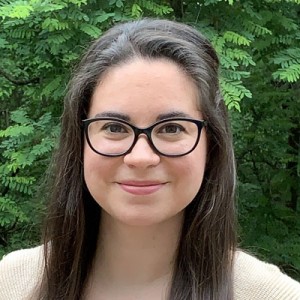Summary
Rachael Philips, Ph.D., graduated in 2010 with a bachelor's degree in physiological science from UCLA. There, she volunteered and later transitioned to a lab assistant in Dr. Ram Raj Singh’s lab studying systemic lupus erythematosus skin pathogenesis. Next, Dr. Philips began graduate school to explore fundamental epigenetic questions in the immune system. Under the guidance of Dr. Virginia Shapiro at Mayo Clinic, she studied how histone deacetylase 3 (HDAC3) regulates transcriptional programs during T cell development. Dr. Philips found that HDAC3 ensures appropriate thymocyte fate decisions by repressing transcription factors and cell surface receptors at multiple developmental checkpoints. Appreciating the importance of external stimuli leading to proper cell fate choices, she shifted to the peripheral immune system to understand how perturbations in cell signaling lead to downstream and sometimes long-term effects in the immune response. Accordingly, she joined Dr. John O’Shea’s research group in 2019 to understand the integration between cell signaling and immune response. In 2020, she was awarded a Postdoctoral Research Associate Training (PRAT) fellowship (F32 equivalent) to study the consequences of a STAT1 gain-of-function mutation in gene expression and immune response to viral infection.
Research Statement
The coordinated effort of the immune system in host defense depends on the proper release and interpretation of different cytokine signals. Several examples of monogenic diseases targeting the JAK-STAT pathway reveal there is still a critical need to understand the basic principles of cytokine signaling and cytokine output. For example, patients with STAT1 gain-of-function (GOF) mutations exhibit a type 1/IFN-g bias that antagonizes a type 3/IL-17 immune response necessary for controlling the fungal infection. Yet, paradoxically, patients show chronic and sometimes lethal viral infections. Dr. Philips uses a novel conditional knock in STAT1-GOF mouse model to study the consequences of a ‘stronger’ cytokine signal on gene expression and immune response to viral infections.
Scientific Publications
Education
Mayo Graduate School of Biomedical Sciences
Ph.D., Immunology (2018)
UCLA
B.S., Physiological Sciences (2010)
Experience
Postdoctoral Fellowship
NIAMS, NIH, Bethesda MD (2019-present)
Doctoral Research
Mayo Clinic, Rochester MN (2013-2018)
Student Volunteer and Lab Assistant
UCLA, Los Angeles CA (2008-2013)


